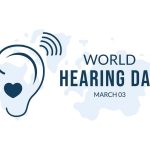Hearing Loss: The Big Picture
To fully understand the importance of proper upkeep of your hearing health it is imperative that you understand the broadest context of hearing health. It is true that congenital hearing loss is indeed a rare condition, impacting less than three out of every 1,000 births in the U.S.. But more than 13% of the total population lives with some detectable degree of hearing loss and this percentage of the population increases steadily with age. By the time we are considering people aged 65 years old and older, more than 1/3 of everyone has hearing loss. Among people aged 75 years old and older, more than half have hearing loss. That means that it is more likely than not, if you are aged 75 or above, that you will suffer from hearing loss.
Resistance to Admitting Hearing Loss
It is incredibly common for someone to downplay the seriousness of their hearing loss. They will say it is nothing more than a minor inconvenience and insist that it is something they will adapt to. But remember, your hearing is the foundation of your ability to balance. So hearing loss not only threatens your physical safety by reducing your awareness of your environment, complicating how you navigate traffic or crowds. Hearing loss is also a risk to your physical safety even when you are by yourself in your own home.
But your physical safety is just the very tip of the iceberg of the many ways in which hearing loss, when left untreated, will wreak havoc on your life. It does not take much imagination to understand how it will harm your emotional life. Hearing loss comes on so incredibly gradually that more often than not, someone will not even recognize that it is happening to them. They will be responding to it subconsciously, however. And one of the most common side effects at this stage is withdrawing socially without even consciously knowing why. They just know that socializing has become fatiguing. They are suddenly investing all kinds of new energy into just following conversations when background noise is present.
Such social withdrawal obviously leads to loneliness and a sense of isolation. These feelings are likely to compound each other and create a sense of frustration. Such feelings of powerlessness, along with the neural networks of your brain literally attempting to rewrite themselves to compensate for their reduced ability to decode sonic signals, causes disorientation and real cognitive decline.
Maybe it is simple vanity. It might often be psychological resistance. But the truth is that fewer than 20% of everyone who lives with hearing loss maintains an appropriate treatment. And of those few people who do take the initiative to respond to their hearing loss responsibly, those who wear hearing aids daily, they wait an average of seven years to do so. That is a seven year delay from the time that they initially suspected they might need hearing aids and finally making a habit of doing so.
Hearing Aids Require Maintenance
Now that you understand the importance of wearing a hearing aid, your hearing loss should not impact your life any more than wearing eyeglasses would. But hearing aids do require upkeep.
Hearing aids generally need to be replaced around every five years. And considering the delicate mechanics involved, every five years is a pretty good lifespan.
Hearing aid technology is continuously evolving. Old models become obsolete and servicing them may eventually not even be an option, so sometimes you may be forced to upgrade. Other times, common wear and tear will take its toll, same as any mechanical device.
But hearing aids also involve some uncommon stressors. They are worn every waking hour of every day, so it should be no surprise that moisture eventually accrues, and being in such intimate proximity to so much minute circuitry, the potential for wear and tear should be obvious. And ear wax builds up on hearing aids, reducing their effectiveness.
Make An Appointment Today
Most importantly, listen to your gut. If you suspect it is time to upgrade your hearing aids, make an appointment to do so. And everyone’s hearing loss is unique, so obviously every hearing aid is customized for your unique needs.
We will help you carefully consider which of our many customizable options are just right for your needs and your budget. And we will teach you the simple procedures of cleaning and upkeep necessary to maximize your hearing aid’s greatest functioning and lifespan.






